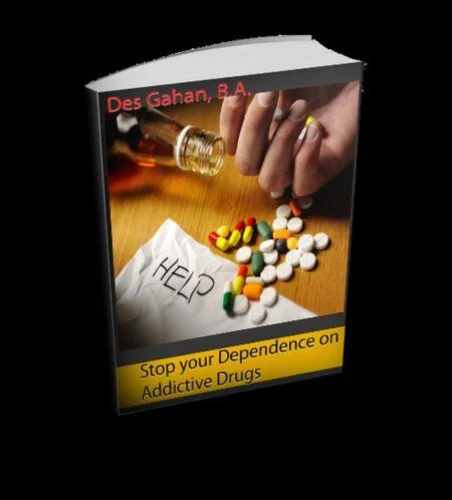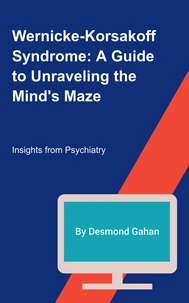Stop your Dependence on Addictive Drugs
Par :Formats :
Disponible dans votre compte client Decitre ou Furet du Nord dès validation de votre commande. Le format ePub est :
- Compatible avec une lecture sur My Vivlio (smartphone, tablette, ordinateur)
- Compatible avec une lecture sur liseuses Vivlio
- Pour les liseuses autres que Vivlio, vous devez utiliser le logiciel Adobe Digital Edition. Non compatible avec la lecture sur les liseuses Kindle, Remarkable et Sony
 , qui est-ce ?
, qui est-ce ?Notre partenaire de plateforme de lecture numérique où vous retrouverez l'ensemble de vos ebooks gratuitement
Pour en savoir plus sur nos ebooks, consultez notre aide en ligne ici
- FormatePub
- ISBN978-1-386-38259-1
- EAN9781386382591
- Date de parution24/05/2017
- Protection num.pas de protection
- Infos supplémentairesepub
- ÉditeurRelay Publishing
Résumé
What Is drug addiction?Addiction is a chronic disease characterized by drug seeking and use that is compulsive, or difficult to control, despite harmful consequences. The initial decision to take drugs is voluntary for most people, but repeated drug use can lead to brain changes that challenge an addicted person's self-control and interfere with their ability to resist intense urges to take drugs.
These brain changes can be persistent, which is why drug addiction is considered a "relapsing" disease-people in recovery from drug use disorders are at increased risk for returning to drug use even after years of not taking the drug. It's common for a person to relapse, but relapse doesn't mean that treatment doesn't work. As with other chronic health conditions, treatment should be ongoing and should be adjusted based on how the patient responds.
Treatment plans need to be reviewed often and modified to fit the patient's changing needs. Long-term use also causes changes in other brain chemical systems and circuits as well, affecting functions that include: learning judgment decision-making stress memory behavior Despite being aware of these harmful outcomes, many people who use drugs continue to take them, which is the nature of addiction.
These brain changes can be persistent, which is why drug addiction is considered a "relapsing" disease-people in recovery from drug use disorders are at increased risk for returning to drug use even after years of not taking the drug. It's common for a person to relapse, but relapse doesn't mean that treatment doesn't work. As with other chronic health conditions, treatment should be ongoing and should be adjusted based on how the patient responds.
Treatment plans need to be reviewed often and modified to fit the patient's changing needs. Long-term use also causes changes in other brain chemical systems and circuits as well, affecting functions that include: learning judgment decision-making stress memory behavior Despite being aware of these harmful outcomes, many people who use drugs continue to take them, which is the nature of addiction.
What Is drug addiction?Addiction is a chronic disease characterized by drug seeking and use that is compulsive, or difficult to control, despite harmful consequences. The initial decision to take drugs is voluntary for most people, but repeated drug use can lead to brain changes that challenge an addicted person's self-control and interfere with their ability to resist intense urges to take drugs.
These brain changes can be persistent, which is why drug addiction is considered a "relapsing" disease-people in recovery from drug use disorders are at increased risk for returning to drug use even after years of not taking the drug. It's common for a person to relapse, but relapse doesn't mean that treatment doesn't work. As with other chronic health conditions, treatment should be ongoing and should be adjusted based on how the patient responds.
Treatment plans need to be reviewed often and modified to fit the patient's changing needs. Long-term use also causes changes in other brain chemical systems and circuits as well, affecting functions that include: learning judgment decision-making stress memory behavior Despite being aware of these harmful outcomes, many people who use drugs continue to take them, which is the nature of addiction.
These brain changes can be persistent, which is why drug addiction is considered a "relapsing" disease-people in recovery from drug use disorders are at increased risk for returning to drug use even after years of not taking the drug. It's common for a person to relapse, but relapse doesn't mean that treatment doesn't work. As with other chronic health conditions, treatment should be ongoing and should be adjusted based on how the patient responds.
Treatment plans need to be reviewed often and modified to fit the patient's changing needs. Long-term use also causes changes in other brain chemical systems and circuits as well, affecting functions that include: learning judgment decision-making stress memory behavior Despite being aware of these harmful outcomes, many people who use drugs continue to take them, which is the nature of addiction.























